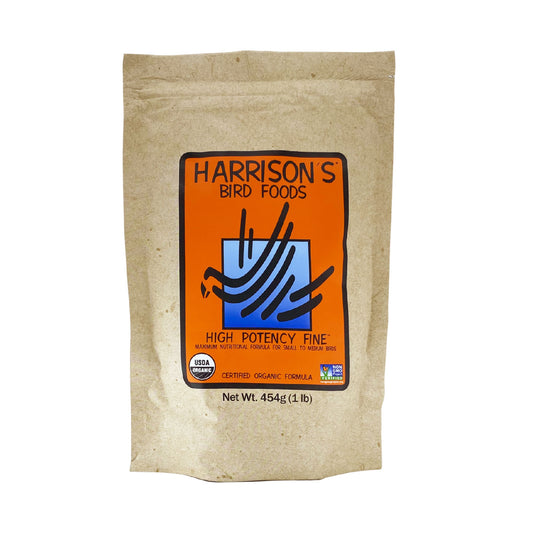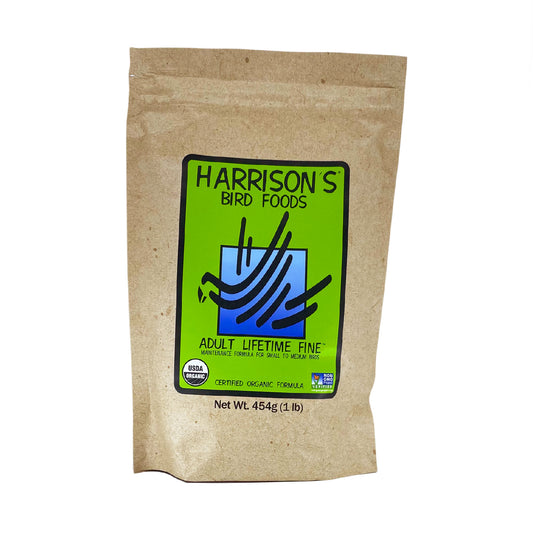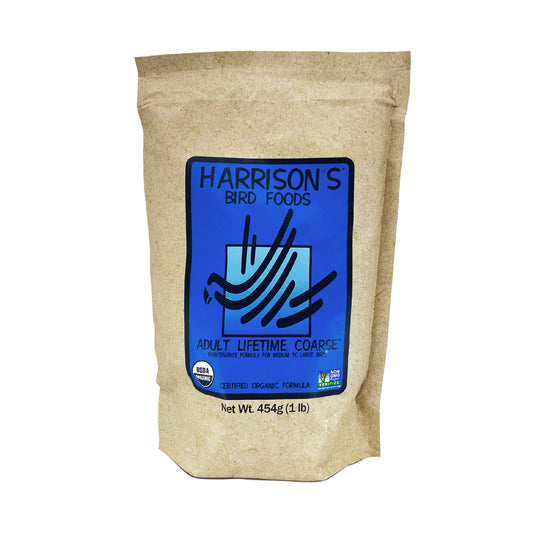
How to convert your bird to a pellet diet.
A pellet diet is crucial for avian health, providing balanced nutrition that meets your bird’s essential vitamin, mineral, and nutrient needs. Unlike a varied diet that can lead to selective eating, pellets minimize this risk, ensuring consistent nourishment. However, it's vital to complement pellets with fresh fruits, vegetables, and occasional treats for a well-rounded diet.
Here’s a step-by-step process I’ve successfully used to transition small parrots to pellets:
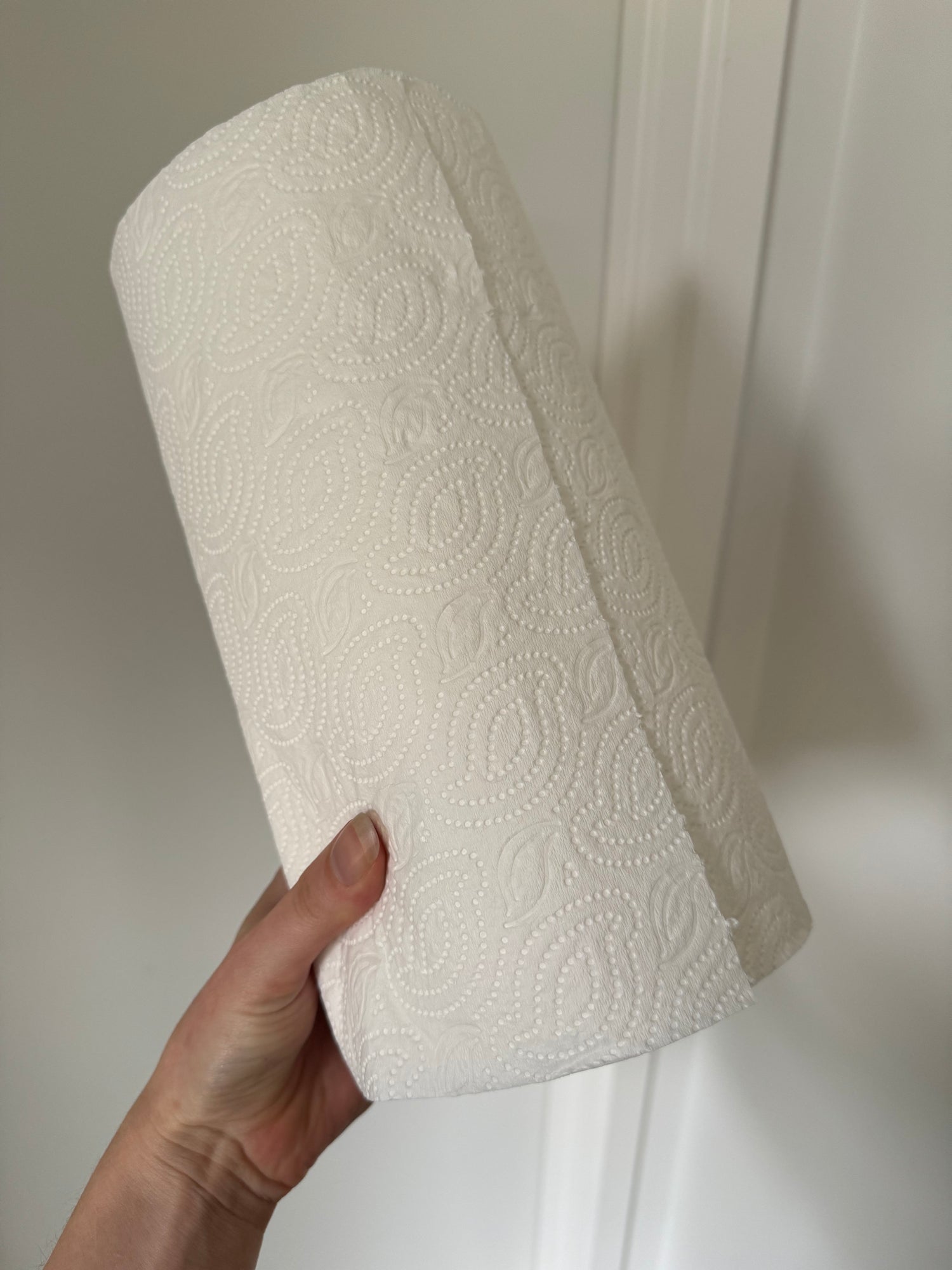
Step 1:
Monitoring droppings.
Line your bird’s cage with paper towels and change them daily. This allows you to monitor the volume, frequency, and color of droppings, helping you identify any changes in eating habits during the transition.
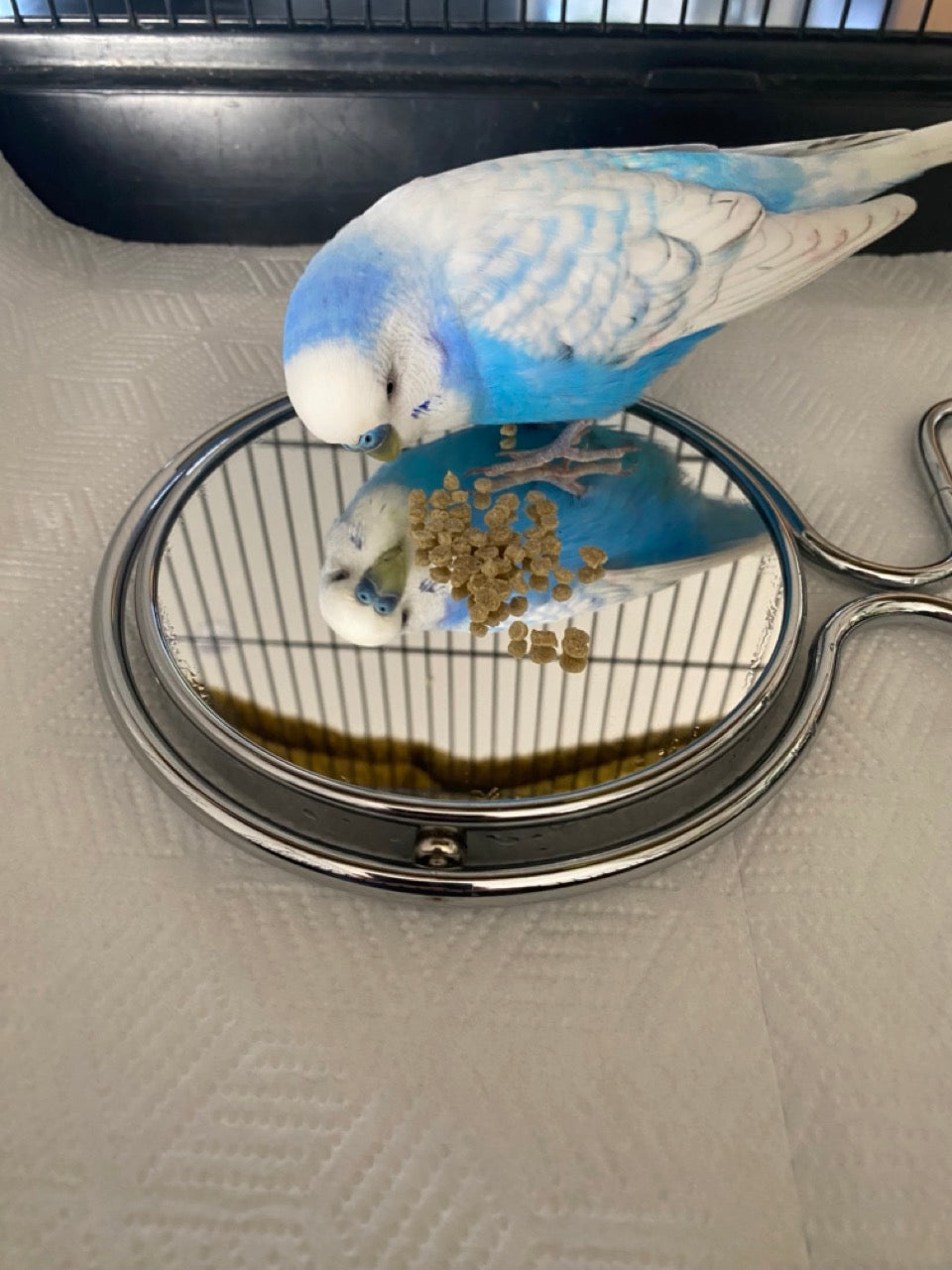
Step 2:
Associating pellets as a food.
Place a mirror flat on the cage bottom and sprinkle pellets on top. The reflection will encourage your bird to explore the pellets, associating them with food. Once your bird starts to eat the pellets, proceed to the next step.
I'm a huge fan of this particular mirror as a tool for this job.
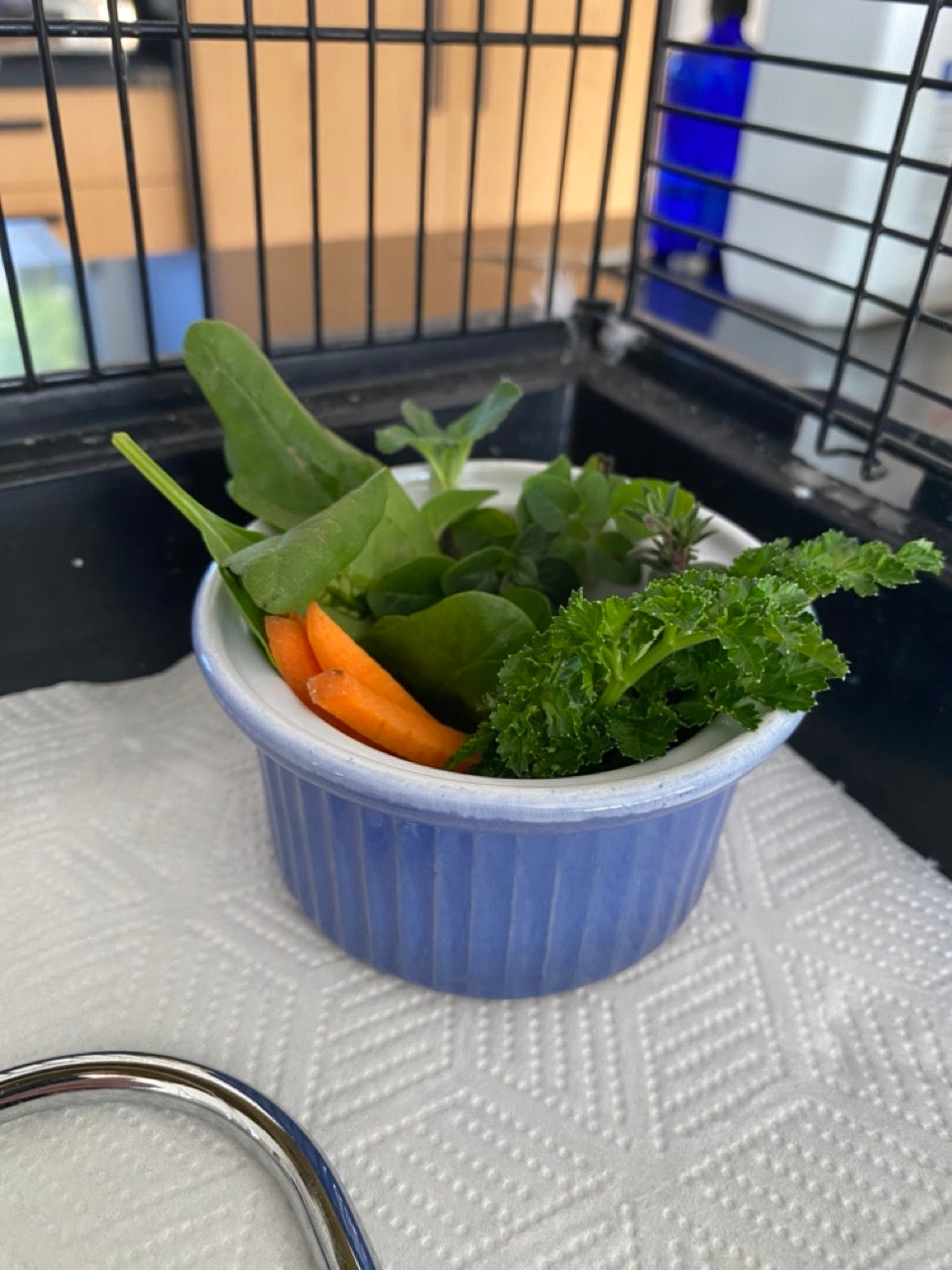
Step 3:
Add healthy options and reducing unhealthy options.
Remove excess food, such as millet sprays, seed bells and extra food containers, but keep one main seed container accessible. This will encourage your bird to explore other healthier food options.
Now offer a variety of sprouted grains, vegetables, herbs, and fruits. Here’s a list of some healthy options to try:
-
Fruit:
Apples (remove seeds)
Pears (remove seeds)
Blueberries
Kiwi Fruit
Grapes (seedless)
Oranges (small quantities due to acidity)
Strawberries
Mango
Papaya
Banana
Cherries (remove pits)
Watermelon (seedless)
Rockmelon (cantaloupe)
Honeydew Melon
Plums (remove pits)
Peaches (remove pits)
Apricots (remove pits)
Nectarines (remove pits)
Passionfruit
-
Vegetables:
Carrot (chopped or grated)
Spinach (in moderation)
Kale
Broccoli
Silverbeet
Pumpkin (cooked or raw, seeds removed)
Edamame beans
Snow pea shoots
Zucchini
Sweet Potato (cooked)
Bell Peppers (all colors)
Cucumber
Celery (remove stringy parts)
Beetroot (leaves and root in moderation)
Green Beans
Peas
-
Herbs:
Basil
Parsley (moderation)
Coriander (Cilantro)
Mint (any variety)
Thyme
Oregano
Sage
Dill
Rosemary
Lemon Balm
Chamomile
Chervil
Lemon Verbena
Marjoram
Bee Balm
Bay Leaf (fresh)
Tarragon
Fennel (leaves)
Comfrey (in small amounts)
-
Weeds:
Dandelion (flowers and leaves)
Chickweed
Plantain
Purslane
Nasturtium (flowers and leaves)
Clover (moderation)
Shepherd's Purse
Mallow
Lamb's Quarters
Yellow Dock
Bittercress
Peppergrass
Wild Mustard
Borage (flowers and leaves)
Sorrel
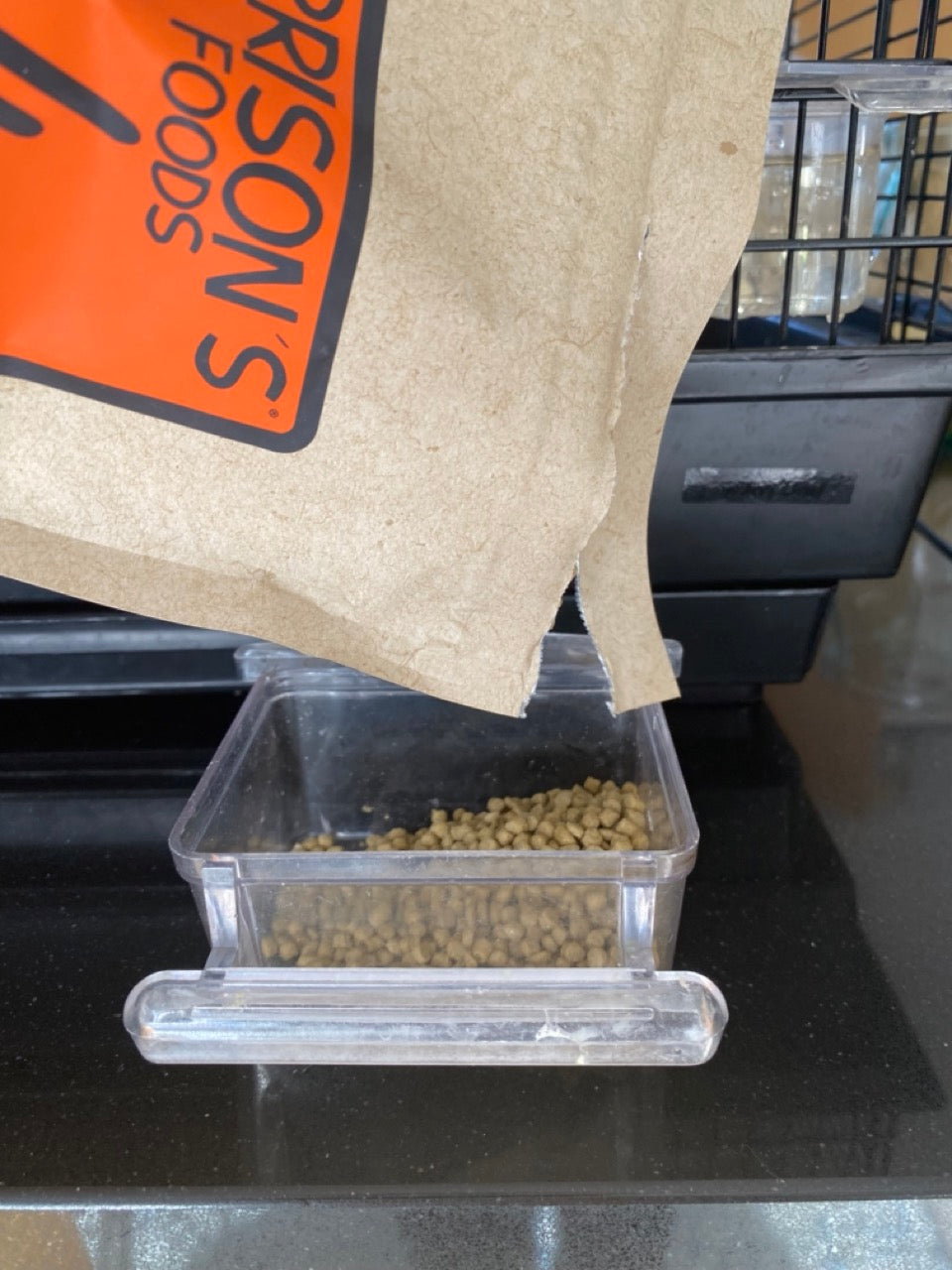
Step 4:
The Switch.
This process may take some time, depending on your bird's willingness to adapt and the amount of time you can dedicate to the transition. It's essential to be patient.
Before bedtime, remove the seed bowl and replace it with pellets, keeping the bowl in the same spot. Your bird will notice the change in the morning. Leave the pellets for 30 minutes to an hour, then switch back to the seed bowl.
Gradually increase the time pellets are available by 15 minutes each day. After a few days, this will add up to a couple of hours of pellets in the morning. Always return to seeds for the rest of the day.
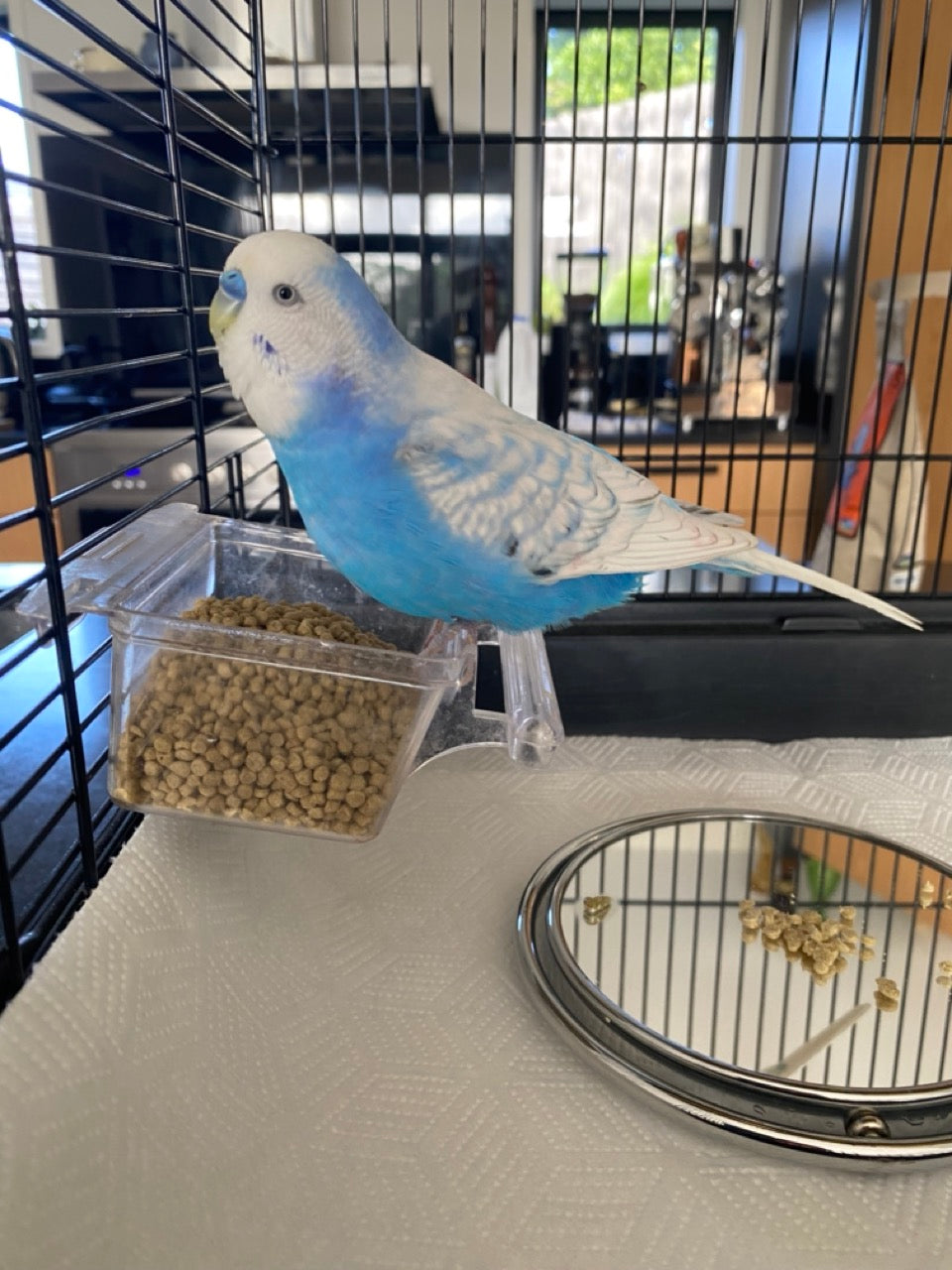
Step 5:
Complete Seed Removal...well almost ;)
Once you're confident your bird is eating pellets, remove seeds entirely for a day. Monitor droppings closely and ensure fresh vegetables and fruits are always available. Seeds should be reserved as an occasional treat, comprising only about 5% of the overall diet.
I hope these steps assist you in transitioning your bird to a healthier diet. Keep in mind that every bird is unique, so it's crucial to adapt to their individual pace during this process.
IMPORTANT!
Monitor your bird's droppings closely, as they are a reliable indicator of dietary intake. If you notice a decrease in the size or quantity of droppings, it may signal that your bird isn’t eating the pellets. In that case, revert to the mirror technique until you confirm they are actively crumbling and consuming the pellets.
Give some of our pellets a try!
-
Harrison's - High Potency Fine Pellets
Regular price From $32.00 NZDRegular priceUnit price / per -
Harrison's - Adult Lifetime Fine Pellets
Regular price From $29.00 NZDRegular priceUnit price / per -
Harrison's - Adult Lifetime Coarse Pellets
Regular price From $28.00 NZDRegular priceUnit price / per -
Passwell Parrot Pellets - 1kg
Regular price $17.50 NZDRegular priceUnit price / per


